Innovation Alphabet
MOOCs
In a nutshell
Learning never stops: MOOCs (Massive Open Online Courses) are educational tools accessible to anyone, intended for distance learning for a large number of participants. The materials provided are copyright-free and usually developed by teachers from university consortia. With free courses, access to quality education exponentially expands and learning can continue throughout life.


Application Fields
• Educational scope: MOOCs provide a platform of free and always available educational content to enrich one’s knowledge. They are aimed at everyone: college students, working students, teachers, as well as people outside the school environment who have an interest and curiosity in the topics covered.
• Work environment: Shared teachings are also a valuable tool for workers’ continuing education, enabling them to update skills in their relevant field and acquire new ones in different fields.
| Benefits | Downsides |
|---|---|
| Organise a MOOC in any setting with connectivity | Feeling of chaos |
| Use your own devices | Demand digital literacy |
| Use any relevant online tools | Demand self-directed learning ability |
| Work across time zones and boundaries | Potential steep learning curve |
| Do not need a degree to enter | Require time and effort |
| Connect across disciplines and institutions | Technology can distract from learning purpose and content |
| Improve lifelong learning skills |
Do you have a Public Affairs & Comms challenge to tackle? Let’s face it. Together.
C-levels from these companies (AND MORE) relied on my expertise to overcome thEIR CHALLENGES IN THIS AREA. And you can, too.
Can I help you?Industries
• MOOCs in the education industry
Coursera is an American e-learning platform founded by computer science professors at Stanford University. It offers university courses in MOOC format: lectures are delivered as videos and made available at any time. In addition, access to teaching materials, tutorials and discussion forums are provided. The teachings are free, and allow for an official certificate of attendance.
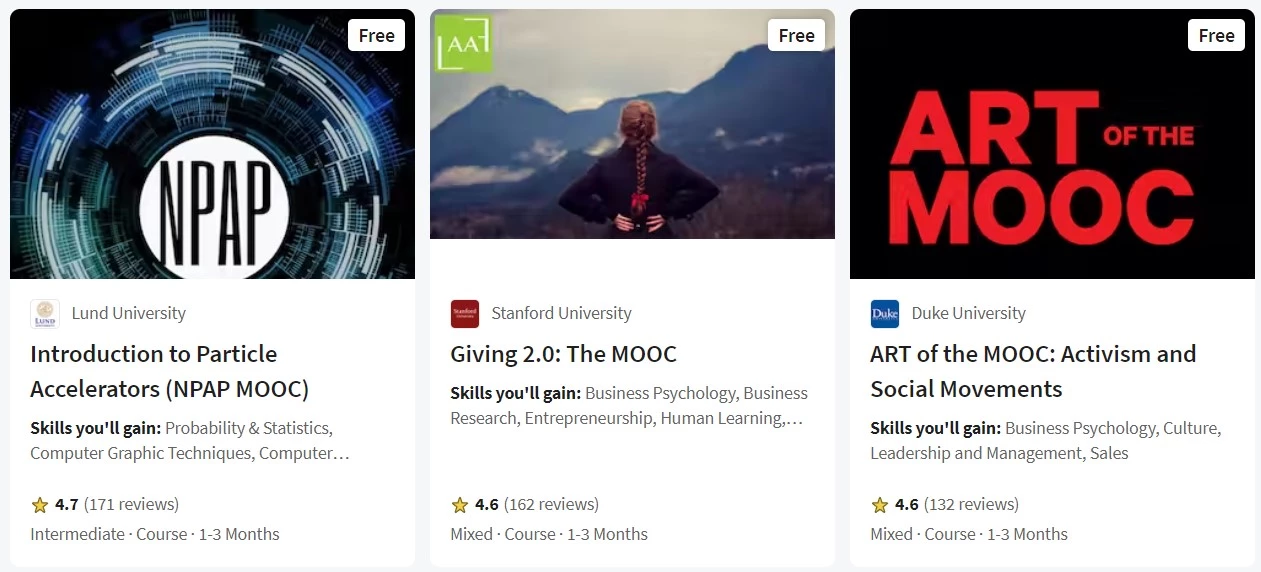
• MOOCs in universities
Harvard University has partnered with MIT (Massachusetts Institute of Technology) to create the EdX platform: an online education initiative that offers many college-level courses designed and taught by professors from top universities. Participation in optional courses allows students to earn college credit. Courses cover a variety of topics: foreign languages, data science, computer science, business and management, engineering, and many others.
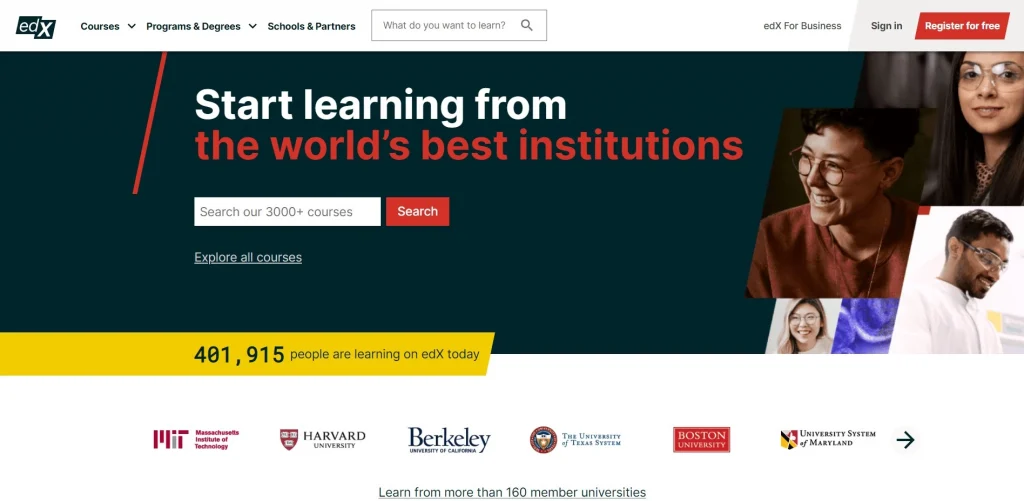
• MOOCs in the working environment
Udemy is a platform that includes free and paid courses aimed at students and adult professionals who want to increase their professional opportunities. It is, likely, the largest marketplace of online courses in the world.
Business functions
• MOOCs in support of IT workers
Simplilearn is an e-learning platform founded in 2010 by Indian entrepreneur Krishna Kumar. Started as a technology blog, it has grown into a training website for topics related to project management. Today it delivers online certificates in cybersecurity, cloud computing, project management, digital marketing, and data science.
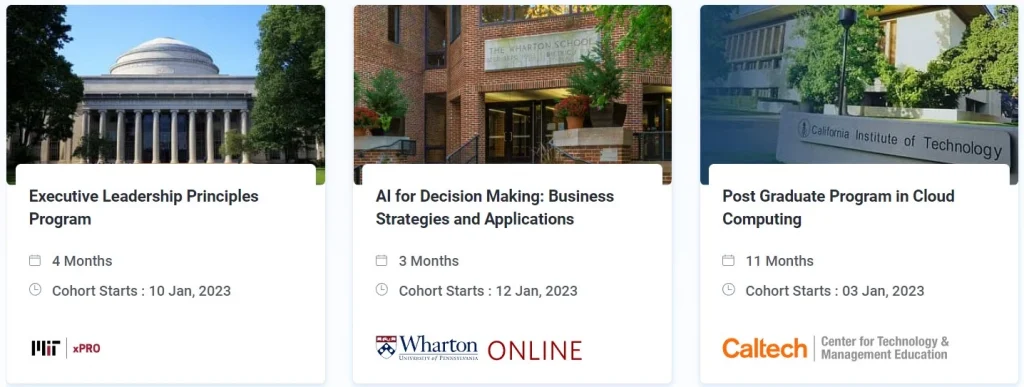
• MOOCs in support of tech skills development
Udacity is an educational organization that offers online courses to acquire the necessary technological skills useful to confidently enter today’s digital work environment. The topics offered cover artificial intelligence, machine learning, self-driving cars and robotics, application and website development, digital marketing, and so on.
• MOOCs in support of foreign students and employees
OpenLearning is a hybrid platform, suitable for both university students and corporate employees. The teachings employ a strategy that, like social media, encourages comments and reactions, to foster a community of collaborative learners rather than individuals lost in a sea of information.
Stay in wonderland
Let me show you how deep the rabbit hole goes.
Check out more of the Innovation Alphabet:

3D Printing
3D Printing
“3D printing” is a process carried out by an electronic device which, instead of resorting to the canonical ink, it molds almost any kind of material: from concrete to living tissue, most usually plastic, but also metal. And the operating principle is similar to that of a traditional printer. The creation of three-dimensional models can lead to the redesign of a company’s production capabilities.
Dive In
5G
5G
5G is the new frontier of cellular telephony. It was designed to improve (or completely replace) previous generations of mobile networks. The 5th generation features lower latency, ensuring flawless performance of business applications and many other digital experiences – thus enabling the new cultural generations to furiously play Fortnite away from home.
Dive In
Advanced Analytics
Advanced Analytics
The term “Advanced Analytics” refers to the ability to autonomously or semi-autonomously analyze data and content to identify correlations, develop analyses, predictions, and recommendations. It is not just a matter of collecting information and then organizing it into watertight compartments: the ultimate goal is to identify a dialogue pattern from a data-driven perspective.
Dive In
Agile
Agile
Agile is an approach to software development designed to respond to change. Teams quickly analyze the context in which they operate, identify uncertainties faced, and figure out how to adapt to always move forward. Interaction between individuals comes before processes and tools; collaboration with the customer is more important than negotiating contracts.
Dive In
Ansoff Matrix
Ansoff Matrix
The Ansoff Matrix is a marketing planning model that arises from the intersection of new and existing products and markets. It derives four possible strategies for expanding the company’s market, which are built around four variables with a changeable factor of risks and possibilities: existing product, new product, existing market, new market.
Dive In
Artificial Intelligence
Artificial Intelligence
Artificial Intelligence is not strictly defined. Basically, it is a computer system able to make decisions in an independent and flexible way. A good AI application can perform everyday tasks better than an average person (e.g., identifying other people from their photos on social media or beating the best chess player). Nothing to fear, then. Unless you are a chess champion.
Dive In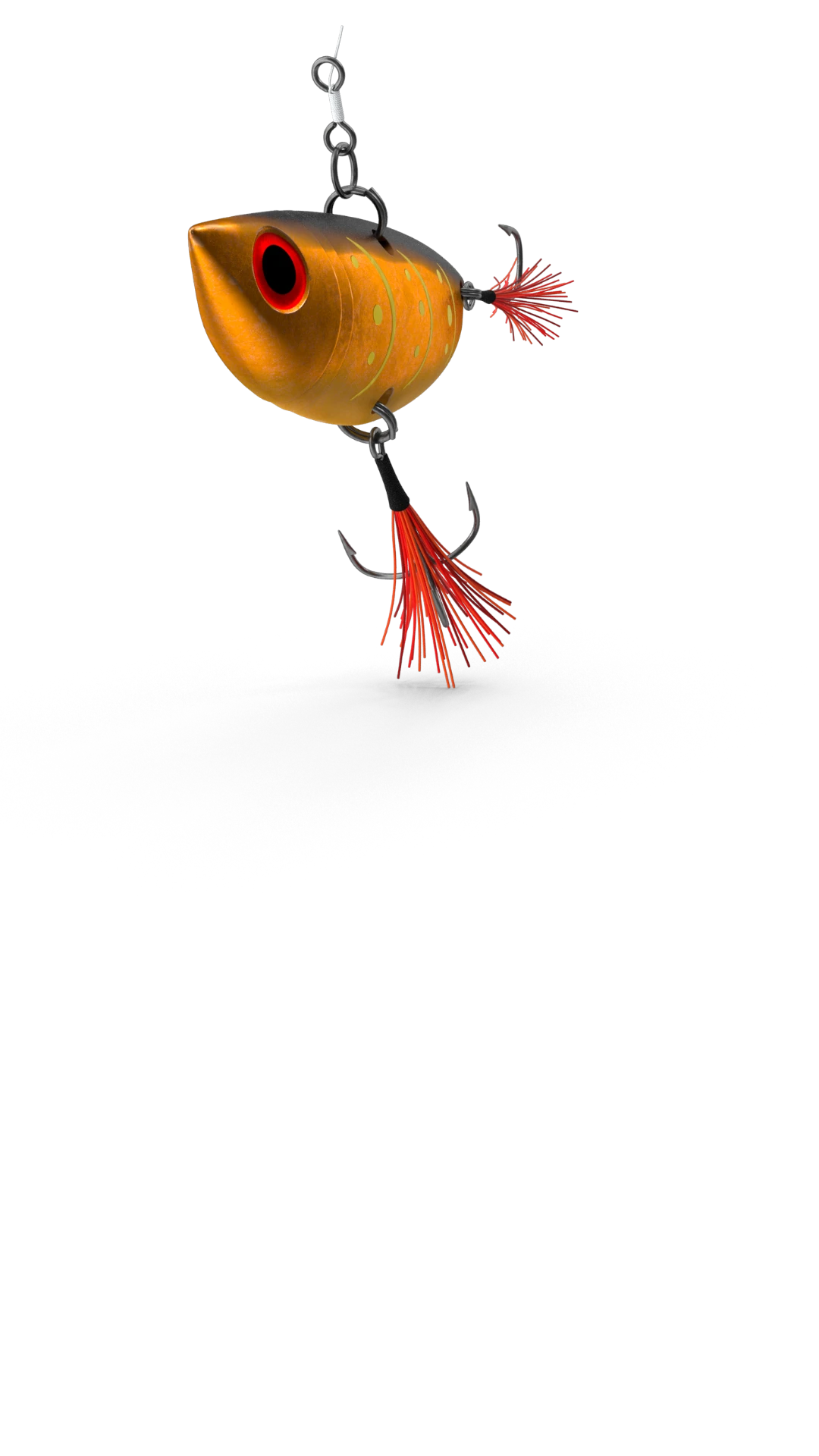
Artificial Scarcity
Artificial Scarcity
We often tend to desire what we cannot have. Or what we are in danger of losing: Artificial Scarcity is a strategy that flaunts a limited number of items that do not correspond to actual availability. The goal is to stimulate the perception in consumers that the stock of items is about to run out and thus create a need based on the “fear of being cut off” or the intention to buy the item in order to resell it at a higher price.
Dive In
Attack Surface
Attack Surface
The term attack surface refers to the part of a system that may be subject to attack or breach by hackers. The smaller that surface is, the easier it will be to protect it. Indeed, the Internet is an ocean of deep, dark waters: those who navigate it must be aware that they are exposing themselves to a flood of digital risks. Yet, ironically, we do not need a big boat to shelter us.
Dive In
Augmented Reality
Augmented Reality
Augmented Reality is an ever-evolving technology that overlays multimedia information on top of our common sensory horizon to gain a deeper understanding of our surroundings. No, it doesn’t allow you to step out of the Matrix dream simulation, nor can it be accessed by swallowing a red pill. But neither is it the disturbing experience of the Playtest episode of Black Mirror.
Dive In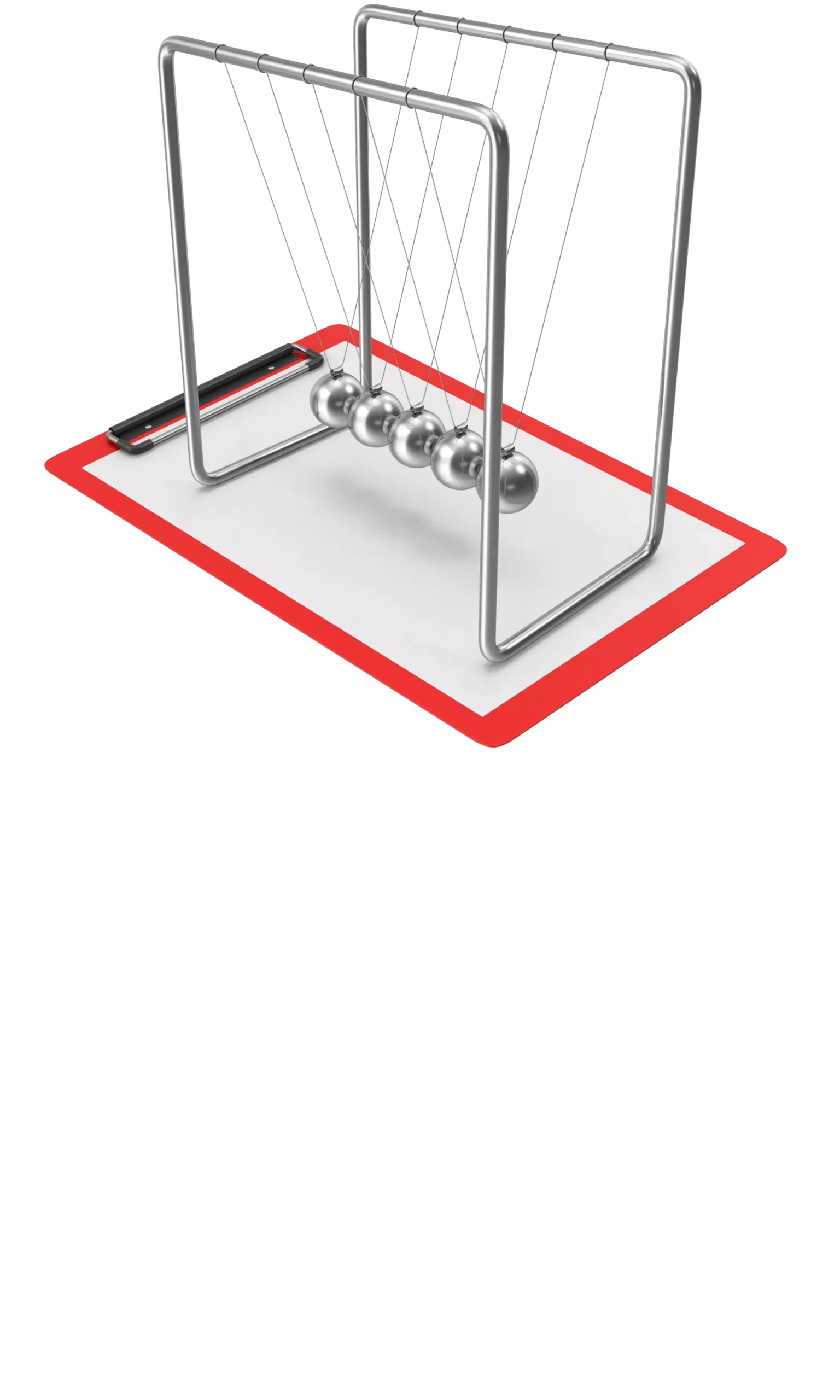
Balanced Scorecard
Balanced Scorecard
In business, as in life, you need balance. The Balanced Scorecard is a holistic tool for strategic management. It offers, in fact, the possibility of assessing corporate performance in its wholeness. An overview that embraces four perspectives: the business/financial side, customers and stakeholders, internal processes, and learning and growth.
Dive In